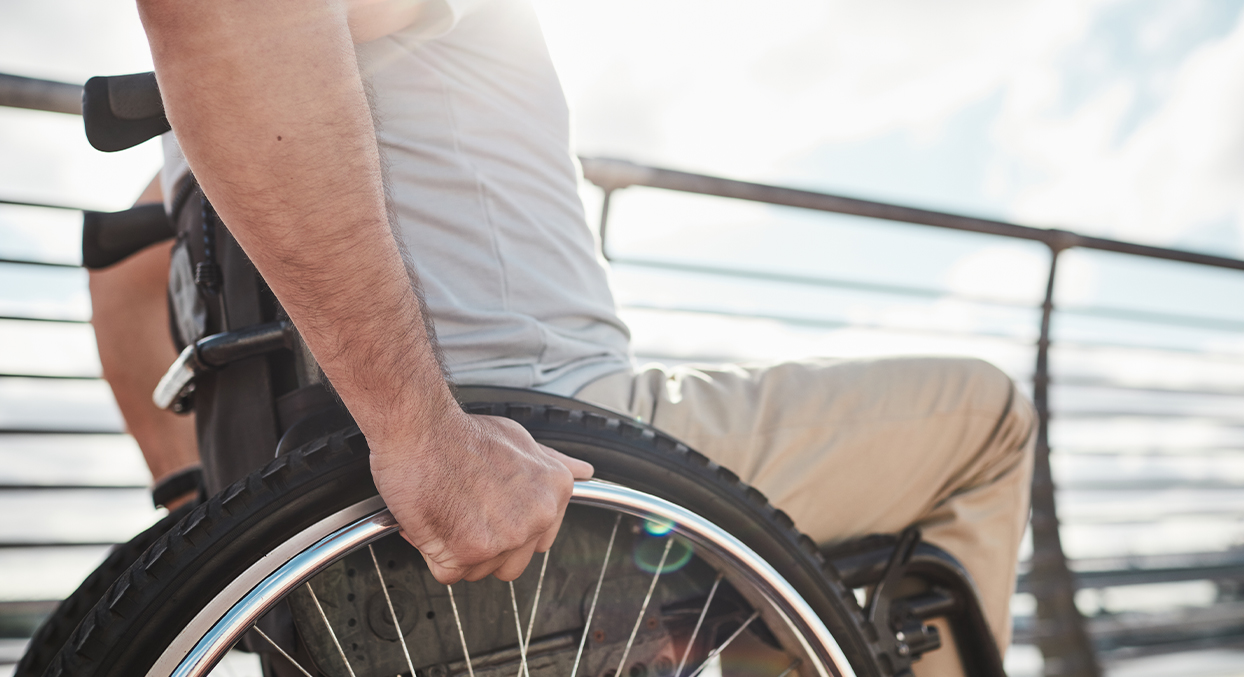In the first article in this series, we summarised the car adaptations available for people who have experienced serious injury. To find out more about vehicle adaptations, Gemma Laing and Natalya Salt sat down with Bill Kiely and Niki Sinclaire from Personal Mobility Solutions (PMS).
Personal Mobility Solutions is recognised as one of the leading specialists in the UK in the field of providing mobility solutions for those with disabilities. It is well-equipped to deal with the assessment and provision of a comprehensive range of transport-related mobility solutions anywhere in the country.
What does PMS do, and how does that fit with helping those who have suffered serious injury to travel independently?
Bill: PMS provides mobility solutions for those with disabilities, ranging from assisting amputees to those with brain injuries or paralysis. Our objective is to assist case managers, occupational therapists and solicitors in helping seriously injured individuals regain their independence by pointing them in the direction of the support they need. PMS has the expertise and knowledge to advise against the backdrop of DVSA and DVLA regulations and rules that apply to a disabled road user.
What is the process for someone wanting to adapt a vehicle through PMS?
Niki: At PMS, we don’t just focus on the disability, we consider the individual’s life as a whole. We find out what sort of lifestyle they live, whether they have pets or children who will use the vehicle, whether they have hobbies that will require the vehicle to carry a lot of equipment, etc. Once we have a well-rounded picture of the individual, we then look at what the person’s specific driving requirements are so we can make a list of vehicles that would potentially accommodate these needs and facilitate independence.
Once the client’s needs are established, PMS recommends a vehicle. We can carry out demonstrations to ensure suitability, particularly with wheelchair accessible vehicles (WAVs). Part of the service we offer clients is to accompany them to dealerships to help identify the right vehicle when a range is being considered. We will support them and ensure the right questions are being asked. Sometimes the vehicle will not be suitable, and we will then have to consider alternatives available.
Bill: If a vehicle seems suitable and needs additional adaptations, PMS will contact a range of authorised adaptors to carry out the modifications on your behalf, managing the whole process step by step. Should a vehicle and adaptions qualify for VAT exemption, then PMS will deal with this for the client.
What is the most common way of funding these adaptations?
Bill: The majority of our clients’ vehicle purchases and adaptations are funded through ongoing or settled personal injury claims as most of the clients PMS works with have been involved in RTAs, medical negligence or clinical negligence claims.
What do you feel are the main challenges people face when looking to adapt their vehicles? What tips would you give people adapting their vehicles?
Niki: There can sometimes be a tendency for a ‘one-size-fits-all’ approach to be taken when it comes to adapted vehicles. At PMS, we ensure that we view everyone as an individual with their own needs that cannot be moulded to fit an already adapted vehicle. Understandably, clients often don’t know what questions they need to be asking and so don’t know if the answers they are being given are correct or not. The most important thing a person can do when looking at how to adapt a vehicle is to seek professional advice from transport experts who have industry knowledge and know what they are talking about.
An additional challenge is that the car manufacturers continually update and change models along with the rules and regulations of the highways, so it can be difficult to keep up.
What is the most unusual adaptation you have seen?
Niki: A client of mine had an adapted horse box worth £230,000. The client was wheelchair dependent after being involved in a road traffic accident. He was part of a very sporting family who were involved in equestrian eventing and understood that if you were competing you couldn’t drive the horsebox in case of a fall. As the client’s wife competed a lot, the client did all the driving. The horse box was adapted to be wheelchair accessible for him, so he had a place to rest, check on the horses, but also drive. An adapted tractor also allowed him to continue farming the land and equestrian facilities.
Bill: The simple fact was that in researching and selecting the correct highly specified vehicle for the client from the start, the car didn’t need any further adaptations. It was a case of selecting the right vehicle to suit the left upper limb disability. In this case, it was a Mercedes with right-handed gear controls and multiple auto features.
Subscribe – In order to receive our news straight to your inbox, subscribe here. Our newsletters are sent out once a month.






